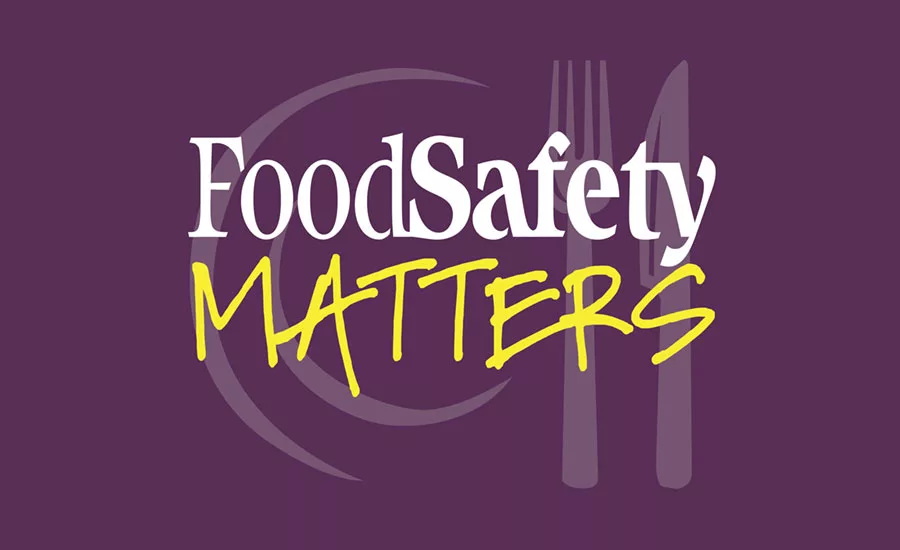Ep. 133. Coffman, Brice-Williamson, Kenjora: Allied to Advance Food Safety

Vanessa Coffman, Ph.D. is the Director of the Alliance to Stop Foodborne Illness. She has a diverse background in food safety and sustainability, with a focus on environmental exposures across the food system. Dr. Coffman has conducted various research for the Food and Agricultural Organization of the United Nations (FAO), on topics such as farming opportunities in post-war Sierra Leonne, occupational and residential exposures from large pork production operations in rural North Carolina, and the association between nitrate in drinking water from food animal operations and fetal health outcomes. Dr. Coffman previously worked at Stop Foodborne Illness as a policy analyst, and she has testified in front of U.S. government officials, authored peer-reviewed papers, and helped draft federal regulations.
Dr. Coffman received a Ph.D. in Environmental Epidemiology from the Johns Hopkins Bloomberg School of Public Health and an M.S. degree from the University of California–Berkeley in Global Public Health and the Environment.
Sherry Brice-Williamson, M.B.A. is the Vice President of Global Quality and Food Safety at the Kellogg Company, where she oversees end-to-end food safety and quality for Kellogg's internal and external network. Sherry has over 20 years of experience in the industry and joined Kellogg in 2012 as part of the Pringles acquisition from P&G. She has served in numerous supply chain roles in the company, ranging from operations to quality. Sherry was promoted to Vice President of Global Food Safety and Quality in January 2020.
Sherry is on the SSAFE board of directors and is affiliated with a number of other industry associations such as Stop Foodborne Illness, where she is an Alliance member. Sherry also co-chairs the national chapter of KAARG (Kellogg African American Resource Group). Sherry holds B.S. and M.B.A. degrees in Business Management and is a member of the Golden Key International National Honors Society.
Megan Kenjora, M.P.A. is the Senior Manager of Food Safety Culture at The Hershey Company, where she leads a diverse global team to embed food safety in the hearts and minds of all Hershey employees. Megan has extensive experience building relationships among diverse groups, getting cross-functional support, and effectively communicating messages across cultures.
Megan was an engaged member of the Global Food Safety Initiative (GFSI) Technical Working Group that authored the GFSI position paper, “A Culture of Food Safety,” and served as the inaugural chair of the International Association for Food Protection (IAFP) Food Safety Culture Professional Development Group. Bringing a passion for food safety culture, she currently serves on the planning committee and numerous working groups as part of the Alliance to Stop Foodborne Illness.
A combat veteran who served eight years in the U.S. Army, Megan came to Hershey in 2014 from Raytheon, where she specialized in adult learning for various intelligence courses. She is a lifelong learner and an advocate for DEI, serving as a co-lead for the Hershey Veterans Business Resource Group. Megan is an M.B.A. candidate at UNC Kenan-Flagler Business School, and she holds an M.P.A. from Penn State University, B.A. degrees in Political Science and Classics from Bucknell University, and a Korean linguist certification from the Defense Language Institute.
In this episode of Food Safety Matters, we speak with Vanessa, Sherry, and Megan [25:40] about:
- The history of Stop Foodborne Illness and the Alliance to Stop Foodborne Illness, and how the Alliance leverages food safety culture as a vehicle for positive change in the food industry to make food safer for consumers
- The ways in which Megan’s experience at Hershey informs the Alliance’s work, such as bringing a proactive perspective to industry engagement and encouraging the adoption of best practices
- How Kellogg’s and Hershey’s memberships in the Alliance have helped both companies drive sustainable food safety cultures through collaboration and knowledge-sharing
- The resources included in Stop Foodborne Illness’ Food Safety Culture Toolkit, which is tailored for small- and medium-sized businesses
- How the Alliance’s work, such as advocacy for recall modernization, is steered by the needs and expertise of its members
- Why it is important for industry to understand the crucial need for food safety, and how resources such as video messaging and gamification frameworks can support that understanding
- The importance of clear and effective food safety communication from upper management, and how the Food Safety Culture Toolkit aids this objective
- The ways in which Sherry and Megan have established successful communication practices within their organizations to encourage robust food safety cultures.
News and Resources
Poisoned—Book on Prominent Foodborne Illness Outbreak—Getting New Edition, Netflix Documentary [2:08]
FDA Submits FSMA Traceability Final Rule Ahead of New Era of Smarter Food Safety Webinar [7:26]
Trust, Transparency Focus of Maple Leaf Foods' 12th Annual Food Safety Symposium [20:12]
Ep. 128. Bill Marler: Perspectives on Poisoned and Food Safety Progress
FSMA Proposed Rule for Food Traceability (FDA)
We Want to Hear from You!
Please send us your questions and suggestions to podcast@food-safety.com







